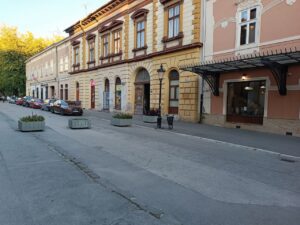Influence of cultural events on the rental market
Cultural events have long been recognized as catalysts for economic activity, but their influence extends far beyond immediate financial gains. As cities host festivals, concerts, art exhibitions, and sporting events, the rental market often experiences significant fluctuations. This article explores how cultural events shape the dynamics of the rental market, impacting both short-term and long-term rental strategies, and ultimately influencing the broader economy.
Influence of Cultural Events on the Rental Market
Cultural events serve as a magnet for tourists and locals alike, driving demand for rental properties in the vicinity. When a major event is scheduled, such as a music festival or an international sports competition, the influx of visitors can lead to a surge in short-term rental bookings. Property owners often capitalize on this opportunity by adjusting their pricing strategies, sometimes doubling or tripling their rates to accommodate the heightened demand. This phenomenon is particularly evident in cities known for hosting annual events, where rental prices can fluctuate dramatically based on the calendar.
Moreover, the impact of cultural events is not limited to short-term rentals. Long-term rental markets can also feel the ripple effects. For instance, neighborhoods that host popular events may see an increase in demand for permanent housing as visitors fall in love with the area and decide to relocate. This can lead to rising rental prices and a tightening of the market, making it more challenging for local residents to find affordable housing. As a result, cultural events can inadvertently contribute to gentrification, reshaping the demographic landscape of a community.
Additionally, the influence of cultural events on the rental market can extend to the types of properties that are in demand. For example, during a film festival, there may be a surge in interest for unique, aesthetically pleasing accommodations that appeal to filmmakers and artists. Similarly, during a major sporting event, larger properties that can accommodate groups may see increased interest. This shift in demand can prompt landlords to modify their offerings, investing in renovations or marketing strategies that align with the specific cultural event, thereby further intertwining the rental market with the cultural calendar.
In conclusion, cultural events play a pivotal role in shaping the rental market, influencing both short-term and long-term dynamics. As cities continue to host a diverse array of events, property owners and renters alike must navigate the complexities that arise from these cultural phenomena. While the immediate financial benefits of increased demand are evident, the broader implications for housing affordability and community demographics cannot be overlooked. Understanding this intricate relationship is essential for stakeholders in the rental market, as they adapt to the ever-evolving landscape shaped by cultural events.



